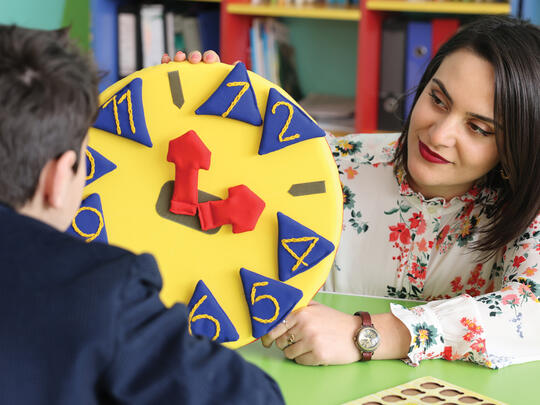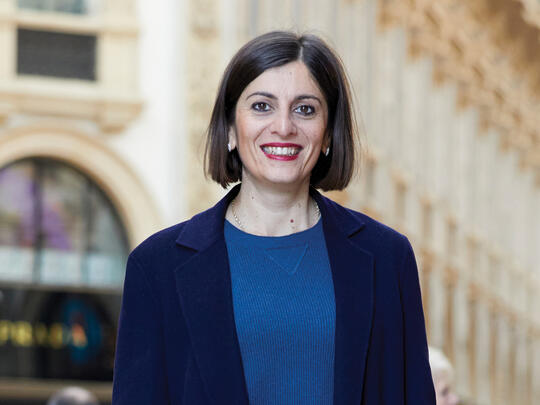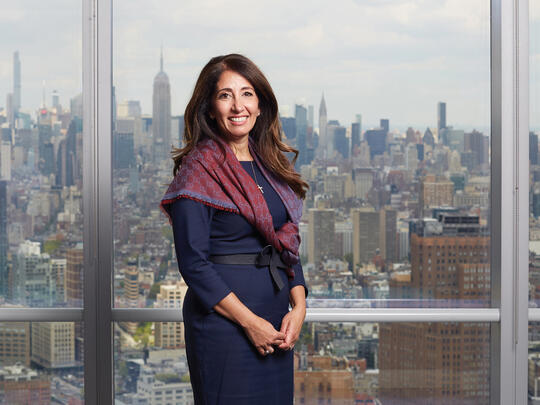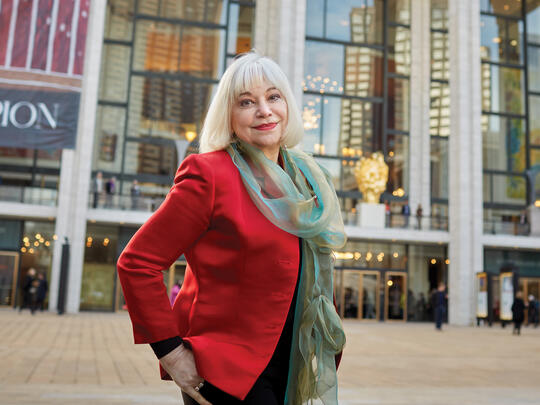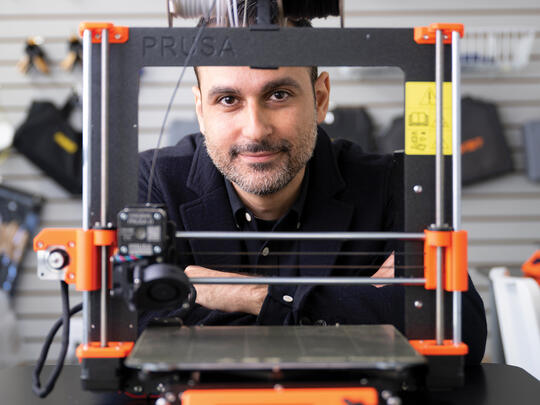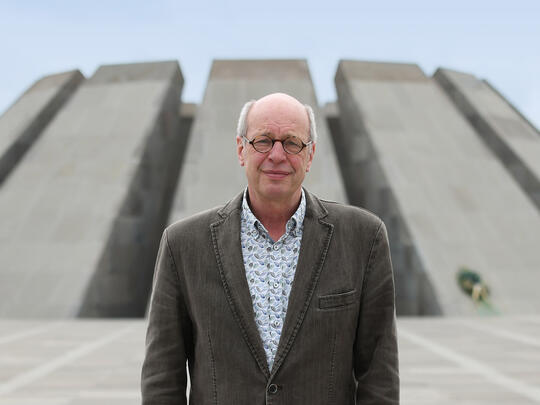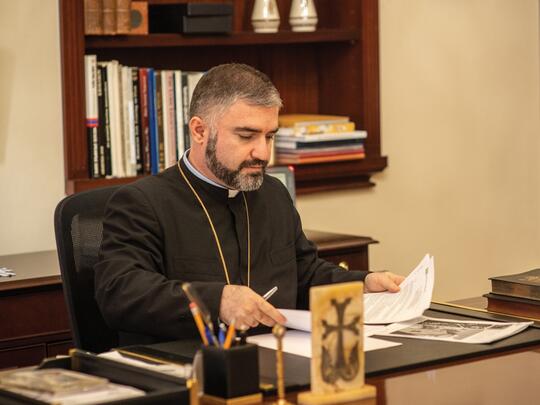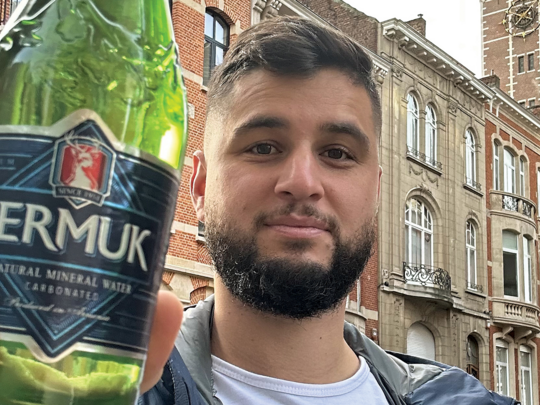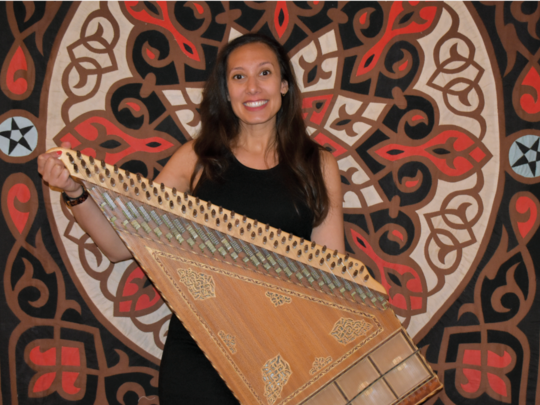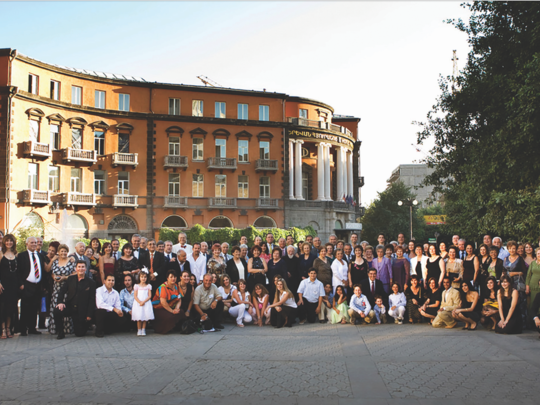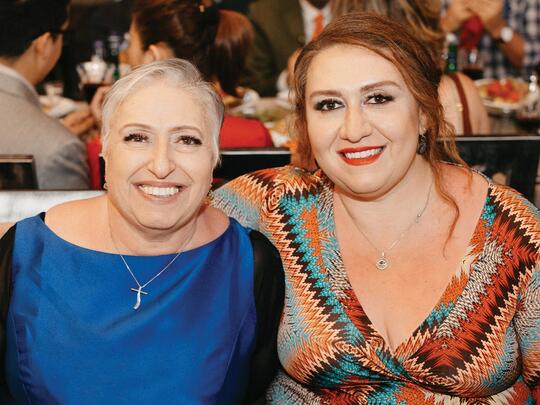
A Commitment to Education
Dikran and Haiganoush Diradourian & Ira and Lillian Dorian
I remember my father telling me that, as a child, his house would always be filled with people. As Armenian immigrants arrived in the region, they would always land at the Diradourian household, which was like a revolving door. I think they were so welcoming because my grandparents could understand what the new arrivals had been through and wanted to help however they could.
The Diradourian family can trace their commitment to education all the way back to the late nineteenth century. As a young boy, the patriarch of the family—Dikran Diradourian—was identified as one of the brightest students in his small Anatolian town of Agn (modernday Kemaliye) and was sent to study at the prestigious Euphrates College in 1895 at the age of eleven. Euphrates College was an American missionary school in the city of Kharpert where young Dikran thrived and received a scholarship to study theology. Restless after graduating during a period of political uncertainty in the Ottoman Empire, Dikran followed the advice of his American teachers and set off to continue his education in the United States.
In 1908, the 23-year-old arrived at the Hartford Theological Seminary in Connecticut with a dollar and a half in his pocket. Alone in the United States and without the means to pay for his education, it was only through a scholarship that Dikran was able to continue training to become an ordained minister in the Protestant tradition of his father and grandfather. But the course of his life soon shifted.
In 1912, Dikran married Haiganoush Tufenkjian, another Euphrates College graduate who had also left in search of a better life in the United States. Born in Kharpert in 1886, Haiganoush—an example of academic success in her own right—graduated from Euphrates College in 1906 and worked as a teacher before she and her family arrived in New York on the Fourth of July 1907.
Together the young couple moved to New Jersey where Dikran—who had had doubts about a future in the priesthood— found a job as an accountant at the A & M Karagheusian Rug Mill, a company owned by brothers Arshag and Mihran Karagheusian, who had, at the mill’s peak in the 1930s, employed half of the town of Freehold, New Jersey. Dikran spent his entire career with A & M Karagheusian, and through his ingenuity, worked his way up the ranks to become the manager of the mill. “I remember my father telling me that, as a child, his house would always be filled with people. As Armenian immigrants arrived in the region, they would always land at the Diradourian household, which was like a revolving door. I think they were so welcoming because my grandparents could understand what the new arrivals had been through and wanted to help however they could,” said Karen Dorian, Dikran and Haiganoush’s granddaughter.
Dikran was introduced to AGBU through Arshag Karagheusian, who—along with being Dikran’s boss—was also the president of AGBU from 1942 until 1953. During Karagheusian’s presidency, Dikran served as secretary of the AGBU Central Board of Directors, during which time he and the organization worked to undertake an extensive overhaul of AGBU schools in the Near East, laying the groundwork for the pillars of academic excellence the schools would become in the 1960s. When Dikran passed away in 1954, Haiganoush established an AGBU endowment in his honor to provide scholarships to needy Armenian students.
The family’s dedication to education and AGBU, however, long outlived Dikran and Haiganoush, who passed away in 1977. Their three children, Richard, Ira and Margaret—who all went by the name Dorian—continued their parents’ spirit of generosity and community involvement. But it was Ira and his wife Lillian who would enable the AGBU Dikran A. and Haiganoush Diradourian Scholarship Fund to expand and come to the aid of even more students for many generations to come.
Ira—born in 1917—inherited his parents’ love of learning, graduating from Princeton University in 1937 and Harvard Law School in 1940. His stellar academic pedigree made him essential during World War II, during which time he worked with the United States Judge Advocate General (JAG) Department in India and retired with the rank of lieutenant colonel in the Air Force Reserves in 1976. After returning to the United States after the war, he practiced law in New Jersey, including before the State Supreme Court. Besides law, he was also drawn to politics and was active in local government, serving as the mayor of his hometown—Cranford, New Jersey—in 1959 and 1960 as well as on the Cranford Township Committee for many years.
His wife, Lillian Dorian (née Dishian), was no less impressive in her educational and professional accomplishments. Attending William Paterson University at a time when few women pursued higher education, Lillian became a sales promotion director for the American Broadcasting Company (ABC) in New York in the late 1940s and early 1950s, and in addition to raising her late daughter Carol, was a writer of humorous verse that appeared in numerous publications, including Family Circle, The New York Times and The Saturday Evening Post and The Wall Street Journal. “When cleaning out the attic, one thing I’ve learned is this: to figure half the time for work, the rest to reminisce,” she wrote in a 1973 issue of Good Housekeeping in her classic wry tone.
When Lillian passed away in January 2016, she bequeathed a significant portion of her estate to the Dikran A. and Haiganoush Diradourian Scholarship Fund, which provides students with great potential with the support they need to succeed in their education—much in the same way her father-in-law Dikran was able to do more than a century ago thanks to a couple of life-altering scholarships of his own.


